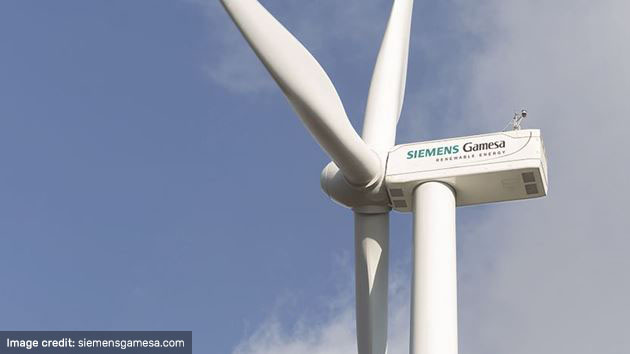Key research shared today by the Offshore Energy Digital Strategy Group (OEDSG) at an OEUK- hosted webinar reveals digitalisation across the oil and gas and renewable energy sectors is gathering momentum.
The OEDSG comprises Offshore Energies UK (OEUK), Opportunity North East (ONE), Net Zero Technology Centre (NZTC), Technology Leadership Board (TLB), North Sea Transition Authority (NSTA), The Crown Estate and Crown Estate Scotland, who with support from Deloitte, developed the survey, building on the findings of a baseline study conducted in 2020.
Findings from 2023 data reveal progress in the pace and integration of digitalisation with organisations recording an 8 per cent improvement across key metrics relating to strategy, leadership, training and capabilities. In comparison, the survey identifies a lag in data maturity which suggests more companies need to focus attention on developing data strategies if they are to capitalise on the opportunities ahead. There are, however, signs that companies are increasingly adopting a wider range of digital technology and data indicating this situation will improve in the future.
Feedback highlighted how increasing collaboration and coordination could enable organisations to unlock the full potential of data and digital technologies, enabling them to play a key role in accelerating the shift to cleaner energy production. It cites evidence of progress with organisations adopting data-related technologies including cloud platforms, data mesh, and data visualisation tools that are enabling greater levels of collaboration.
With people and skills playing an integral role in the energy transition, the survey highlighted the lack of access to digital and data skills as a key risk to the delivery of digital and data strategies. Challenges relate to both the upskilling of the existing workforce and recruiting new personnel into key roles across the sectors, with calls for organisations to step up initiatives to equip their staff with the necessary knowledge and training.
Using the survey to share insights on trends and challenges, the OEDSG recommends actions for individual organisations and industry and government bodies that will help drive forward the energy transition and these include:
- Increasing efforts to improve digital maturity, with a focus on smaller organisations, equally across wind, oil, and gas.
- Strengthening collaboration between parties including between operators in every energy sector, between operators and the supply chain and between energy sectors to drive effective cross-industry digitalisation.
- Fostering a culture in which leaders encourage staff to adopt data-driven work practices and equip employees with the necessary skills and knowledge.
Daniel Brown, OEUK’s Head of Data & Digital said:
“Data and digital technologies play a key role in driving greater collaboration and efficiency across the UK energy sector. This survey provides invaluable insight of how and where we can work together to shape and accelerate our digital efforts in support of delivering net zero’.
Karen O’Hanlon, Director Digital Tech at Opportunity North East (ONE) said:
“The role of digital and data technologies in achieving the transition to net zero cannot be overstated. They provide essential tools for monitoring, optimising, and managing energy systems, enabling more efficient resource utilisation and facilitating the integration of renewable energy sources. However, the success of these technologies relies heavily on having access to technical talent. Upskilling the workforce and attracting new tech talent to the sector are priorities for ONE and our partners in the North East of Scotland.
Carlo Procaccini, Technology Leadership Board Co-chair, said:
“I am pleased with the publication of this important report looking at data and digital maturity across the offshore energy sectors. Data are crucial for the optimal use of the UKCS to provide energy security and accelerate the energy transition. The report highlights industry progress with data access and digital technologies to extract value from the data, but highlights the urgent need for greater investment in data management and digital skills development. Regulators and industry bodies have an important role in catalysing this. “
Karen O’Hanlon, Director Digital Tech at Opportunity North East said:
“Digital and data technologies are vital to achieving the transition to net zero. They provide essential tools for monitoring, optimising, and managing energy systems. They enable more efficient resource utilisation and facilitate the integration of renewable energy sources. We also need people and skills to achieve this. Upskilling the existing workforce and attracting new tech talent to the sector and region are priorities for ONE and partners.”
Nic Granger, Chair of the OEDSG and NSTA Director of Corporate, said:
“It is hugely encouraging to learn that offshore energy companies are increasingly using digital tools to transform the way they work. However, as the recommendations in our report show, there are still plenty of opportunities for businesses to improve. The OEDSG will play its part in coordinating efforts to realise the full potential of data and digitalisation, accelerating the transition to net zero.”
Olivia Thomas, Head of Marine Planning at The Crown Estate, said:
“The exciting potential of the offshore environment to support nature recovery, unlock renewable energy opportunities, and support energy security means it’s becoming increasingly busy, with more demands on it than ever before. As manager of the seabed around England, Wales and Northern Ireland, we’re committed to collaborating with a wide range of organisations to grow data and digital capabilities to build a joined-up picture of the diverse demands on this space and manage it so that these priorities can be realised for the benefit of the nation and the natural world. Quality data, as well as quality platforms to share, analyse and interrogate data, are key to understanding and addressing these challenges. Today’s report shows promising progress, but also reveals more needs to be done to ensure digitalisation can fulfil its potential to help deliver, and accelerate, positive impacts for all.”
Marc Gellatly, Energy & Infrastructure Data Technical Lead for Crown Estate Scotland, said: “Investing in this survey has allowed us to better understand our offshore renewables stakeholders’ data and digital needs. The results have provided Crown Estate Scotland with a solid evidence base to inform how we further support data and digital contributing to the offshore energy sector’s progress to net-zero.”
Graeme Booth, Head of Digital Technology, Net Zero Technology Centre (NZTC), said: “By harnessing the power of data and implementing both data and digital strategies, organisations can gain unparalleled insights, optimise operations, and accelerate their progress towards a net-zero future. Embracing these advancements is not to be feared, but rather an opportunity to unlock immense value. We’re seeing evidence of this in some organisations. However, it is crucial for all organisations to develop their internal digital skills to foster innovation and facilitate the adoption of technology.”
The report can be downloaded here
Share this article



